The Gay Sisters

Brief Synopsis
Cast & Crew
Irving Rapper
Barbara Stanwyck
George Brent
Geraldine Fitzgerald
Donald Crisp
Gig Young
Film Details
Technical Specs

Synopsis
Before wealthy New Yorker Penn Sutherland Gaylord leaves to fight in World War I, he writes an airtight will leaving everything to his three motherless daughters, Fiona, Evelyn and Susanna. In his instructions to the eight-year-old Fiona, he emphasizes that the Gaylords never sell their land. After Penn is killed in 1918, another will surfaces in France that leaves ten percent of his fortune to a charitable organization. For the next twenty-three years, Penn's will is contested in court and the sisters are unable to use the bulk of the estate. As adults the sisters once again face a challenge from the lawyers who represent the French will. Fiona explains to the judge that the sisters would willingly give up ten percent of their money to the charity now headed by developer Charles Barclay, but they refuse to sell their house as Barclay demands. As no compromise can be reached, Fiona and her sisters storm out of court. Over the years the Gaylords have cut back on their staff, and now the household consists of the cook, Saskia, and Austin, a small boy Fiona recently brought home after the death of their old nanny, who was caring for him. Evelyn has married into the English nobility and is now known as Lady Burton, and Susanna has fallen in love with Gig Young, an artist. That evening, angered by his defense of Barclay in court, Fiona fires her lawyer, Herschell Gibbon, and hires well-respected lawyer Ralph Pedloch. Although Pedloch believes that he can settle the case soon, he is troubled by the enmity between Barclay and the Gaylords. Meanwhile, Barclay learns that Austin is actually Fiona's child, the result of their brief, secret marriage. Although Fiona tells her sisters the truth, explaining that this is the reason she and Barclay hate each other, she refuses to admit it publicly, and Barclay takes her to court in order to prove that he is the boy's father. Rather than allow Barclay to take Austin from her, Fiona sends him with Evelyn to Gig's country house. When Susanna learns that Evelyn and Gig are alone together, she attempts suicide, convinced that her older sister will seduce the man she loves. Susanna's suicide attempt compels Fiona to face the results of her stubbornness. She hurries to Gig's house and returns with Evelyn and Austin. The next day Fiona agrees to allow Barclay to have both the boy and the house. As the sisters pack up their belongings, Evelyn learns that her husband has died. Although Susanna is afraid Gig will reject her now that her sister is free, he advises Evelyn to return to England and serve her adopted war-torn country. Later, Barclay convinces Fiona that he still loves her, and she agrees to live as his wife and Austin's mother.

Director

Irving Rapper
Cast

Barbara Stanwyck
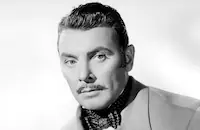
George Brent

Geraldine Fitzgerald
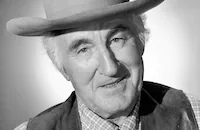
Donald Crisp

Gig Young

Nancy Coleman

Gene Lockhart
Larry Simms
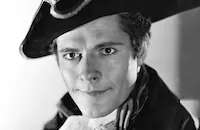
Donald Woods
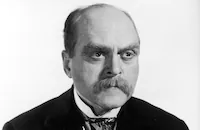
Grant Mitchell

William T. Orr

Anne Revere
Helen Thimig
George Lessey
Charles D. Waldron
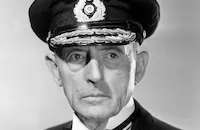
Frank Reicher
David Clyde
Mary Thomas
Carol Combes
Charlene Salerno
Edward Mcnamara
Virgil Cain
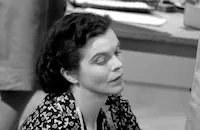
Dorothy Adams
Harry C. Bradley

Charles Drake

George Meeker
Bill Edwards
Creighton Hale
George Haywood
Ray Montgomery

Joseph Crehan
Joan Winfield

Jack Mower
Inez Palange
Walter Brooke
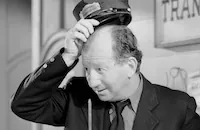
Hank Mann
Murray Alper
Garry Owen
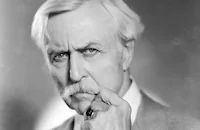
Hobart Bosworth
Erville Alderson

Fern Emmett
Mary Field
Frank Darien
Claire Dubrey
Sarah Edwards
Dorothea Wolbert
Vera Lewis
Flo Promis
Crew
Henry Blanke
Edward Blatt
Lenore Coffee
Leo F. Forbstein
Hugo Friedhofer
Robert Haas
Edith Head
Jesse Hibbs
Charles Lang
Warren Low
Sol Polito
Max Steiner
Perc Westmore

Videos
Movie Clip


Trailer
Film Details
Technical Specs

Articles
The Gay Sisters
Adapted from the novel by Stephen Longstreet (the Parisian expatriate author/screenwriter also behind Stallion Road (1947) and Silver River (1948), among others), the story follows the Gaylord heiresses Fiona, Evelyn, and Susanna. After the death of their mother, their father goes to war, issuing Fiona the solemn injunction to "never sell the land." Decades later, that insistence has impoverished the sisters: man-eater Evelyn (Geraldine Fitzgerald), long suffering Susanna (Nancy Coleman) and tough-as-nails Fiona (Barbara Stanwyck) have burned through lawyers and lawsuits making sure real estate developer Charles Barclay (George Brent) won't get his mitts on their mansion (a struggle that parallels the real-life real estate squabbles between the Vanderbilts and the Rockefellers over the acreage that eventually became Rockefeller Center.) But Fiona has her own private reasons why she won't let Barclay win -- and, with some clever tiptoeing around Hays office limitations, we learn why there's always a towheaded kid (Larry Simms) following the housekeeper around.
Interestingly, Rapper was London-born, and the cast was packed with other UK expats like fellow Londoner Donald Crisp and Dubliners George Brent and Geraldine Fitzgerald. Rapper was also very taken with a young actor named Byron Barr -- according to Stanwyck biographer Axel Madsen, he felt the actor could be "the next Cary Grant". He cast him in the role of "Gig Young", and his portrayal made such a positive impression on the public that he later took on the fictional character's name as his stage name.
In contrast to her prickly character, Stanwyck's co-stars uniformly enjoyed working with her. Despite being under terrible professional strain (at this point in her career, she shuttled between studios completing a feature about every three months), Rapper said that working with Stanwyck was a pleasure, adding that she was "terribly cooperative and the easiest lady to work with." Nancy Coleman (who, unlike her timid character, had much more backbone) also had kind words for the experience of working with Stanwyck, especially for their big drunk scene that "I still think that may be the best piece of acting I ever did." (Her only regret about forming a close relationship with Stanwyck was that she taught her how to smoke.)
The Gay Sisters received encouraging early notes, with Variety writing that it was "long, dignified, rather weighty, fairly impressive and varyingly entertaining picture." While praising Stanwyck for "a vibrantly believable performance" it took Brent to task for "underplay[ing] to such an extent he might as well be thinking of something else", concluding "more severe editing would not only shorten the picture pleasantly but would give it added cohesion and force." However, it did poorly at the box office and Stanwyck curiously omitted it from her list of professional credits later in life. Stanwyck moved on, honing her knack for tough-minded, unstoppable women in role after role. In two short years all that toil paid off when she landed her ultimate cold-blooded dame role in Double Indemnity (1944.)
Producer: Henry Blanke
Director: Irving Rapper
Screenplay: Lenore Coffee (screenplay); Stephen Longstreet (novel)
Cinematography: Sol Polito
Art Direction: Robert Haas
Music: Max Steiner
Film Editing: Warren Low
Cast: Barbara Stanwyck (Fiona Gaylord), George Brent (Charles Barclay), Geraldine Fitzgerald (Evelyn Gaylord), Donald Crisp (Ralph Pedloch), Byron Barr (Gig Young), Nancy Coleman (Susie Gaylord), Gene Lockhart (Mr. Herschell Gibbon), Larry Simms (Austin), Donald Woods (Penn Sutherland Gaylord), Grant Mitchell (Gilbert Wheeler)
BW-110m.
by Violet LeVoit
References:
Hobe. "The Gay Sisters." Variety, June 3rd, 1942.
Smith, Ella. Starring Miss Barbara Stanwyck. Crown Publishers, 1988.
Callahan, Dan. Barbara Stanwyck: The Miracle Woman. University Press of Mississippi. 2012
Chandler, Charlotte. The Girl who Walked Home Alone: Bette Davis, a Personal Biography. Applause Books, 2007
Madsen, Axel. Stanwyck. Harper Collins, 1994
Bubbeo, Daniel. The Women of Warner Brothers: The Lives and Careers of 15 Leading Ladies, with Filmographies For Each. Mcfarland & Co Inc Pub, October 2001

The Gay Sisters
Geraldine Fitzgerald (1913-2005)
Born in Dublin on November 24, 1913, Fitzgerald was educated for a time in a convent school in London. Back in her native Dublin, she happily accompanied her aunt, the Irish actress Shelah Richards, to a theater one afternoon when the director mistook her for an actress, and instructed her "to go backstage and change." An inauspicious start, but it gave her the acting bug. She made her stage debut in 1932 in Dublin's Gate Theater and later appeared in a few forgettable British films: Open All Night (1934), The Ace of Spades, Three Witnesses (both 1935). She made the trip across the Atlantic in 1938 to act with Orson Welles and his Mercury Theater, but agents from Warner Bros. quickly signed her and she was soon off to Hollywood.
She made her film debut in 1939 supporting Bette Davis in Dark Victory, but it was her performance in a second film later in the year that proved to be the most memorable of her career - the role of Isabella Linton in Wuthering Heights. She earned an Oscar® nomination for her turn and stardom should have been around the corner, but Fitzgerald's feuding with studio head Jack Warner (he refused to let her return to the New York stage and she would refuse parts that she thought were inferior) led to some lengthy suspensions of unemployment. Irregardless, Fitzgerald still had some shining moments at Warner Bros. the heady melodrama The Gay Sisters (1942); the superb espionage thriller Watch on the Rhine (1943); Robert Siodmak's terrific, noirish thriller The Strange Affair of Uncle Harry (1945); and a tough crime drama where she played opposite John Garfield Nobody Lives Forever (1946).
Fitzgerald returned to New York by the '50s, and found much work in many of the live television dramas that were so popular in the day: Goodyear Television Playhouse, Lux Video Theatre, Studio One, Schlitz Playhouse of Stars; and even some taped television shows: Naked City, Alfred Hitchcock Presents in between her stage demands.
She did return to the screen by the mid-'60s and proved herself a fine character actress in films like The Pawnbroker (1965); Rachel, Rachel (1968); Harry and Tonto (1974); a wonderfully memorable comic turn as Dudley Moore's feisty grandmother in Arthur (1981); and yet another noteworthy performance as Rose Kennedy in the acclaimed mini-series Kennedy (1983). She also appeared in a few television programs: St. Elswhere, Cagney & Lacey, and The Golden Girls before ill-health forced her to retire by the early '90s. Among the relatives that survive her are her son, director Michael Lindsay-Hogg (Brideshead Revisited; a daughter, Susan Scheftel; and her great-niece, the English actress Tara Fitzgerald.
by Michael "Mitch" Toole
Geraldine Fitzgerald (1913-2005)
Quotes
Why don't you use a little common sense?- Charles Barkley
I hate common sense, it's so common.- Fiona Gaylord
Fiona, I love you.- Charles Barkley
I hate you.- Fiona Gaylord
Wouldn't have me if I was the last man on earth, would you?- Charles Barkley
No.- Fiona Gaylord
Good, we can go somewhere from there. I was afraid you might have grown indifferent to me.- Charles Barkley
Trivia
The lead role was originally offered to Bette Davis, who sent a memo to Jack Warner, saying, "I do wish you'd give 'The Gay Sisters' to someone else."
Byron Barr took his character's name, Gig Young, as his stage moniker.
Notes
According to a February 21, 1941 Hollywood Reporter news item, Warner Bros. purchased the Stephen Longstreet novel for $35,000. The studio intended the project for Bette Davis, and according to memos from producer Henry Blanke to studio executive Hal Wallis reprinted in a modern source, Mary Astor was considered for the part of "Evelyn." Davis objected to this casting, however, as she felt Astor would photograph as too old; Astor was then cast in The Maltese Falcon.
Later Hollywood Reporter news items add the following information about the production: Irene Dunne was considered for the lead role, and M-G-M was approached to lend Norma Shearer. The studio also made an offer to Katharine Hepburn. Nancy Coleman replaced Olivia De Havilland in the part of "Susanna" when the latter was put on technical suspension to enable her to take a vacation. According to modern sources, Davis was tired of playing hard and bitter roles and felt the part of "Fiona" called for qualities that were too similar to her role in the 1941 RKO film The Little Foxes (see below).
The Variety review notes the film's "thinly-veiled references" to prominent New Yorkers and their projects such as the similarity between the "Barclay Square" real estate development and Rockefeller Center, and similar parallels between the "Gaylords" and the Vanderbilts. A press release included in the file on the film at the AMPAS Library announced that actor Bryant Fleming had adopted Gig Young, the name of his film character, as his stage name because preview audiences expressed a liking for that name. Young had previously acted under the name Byron Barr. A sequel to the film, starring Barbara Stanwyck, Coleman and Geraldine Fitzgerald, was planned but was never made, according to a December 1942 Hollywood Reporter news item. Stanwyck reprised her role in a November 23, 1942 Lux Radio Theatre broadcast, co-starring Robert Young. Another version was broadcast on November 22, 1956.















